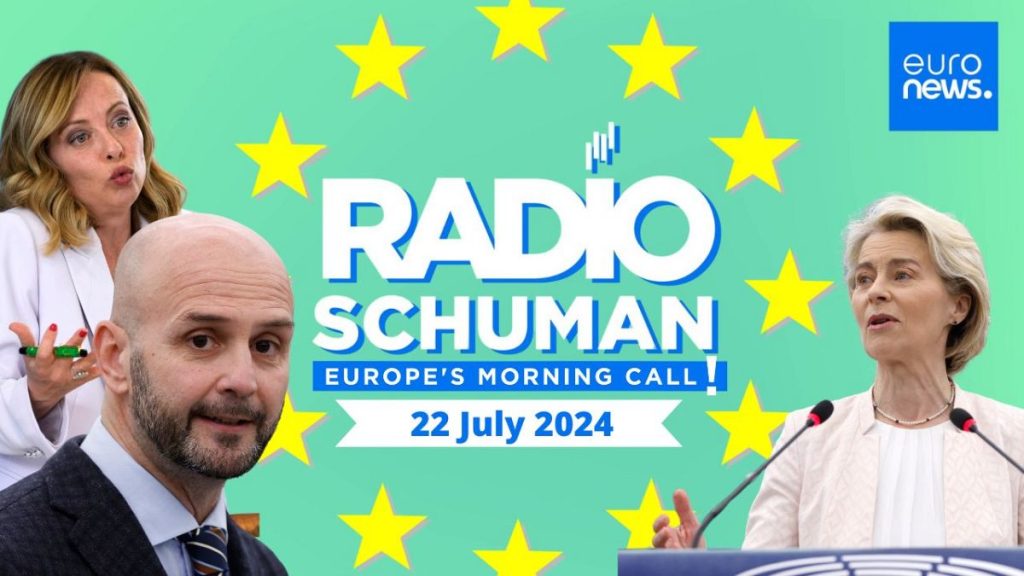Italian Prime Minister Giorgia Meloni, leader of the Fratelli d’Italia party, voted against Ursula von der Leyen’s re-election as European Commission President. This decision was influenced by a variety of international dynamics that factored into the party’s opposition to von der Leyen’s second term. Federico Castiglioni, a researcher in EU politics and institutions at the Istituto Affari Internazionali, and adjunct professor of Strategic Studies at Link Campus, University of Rome discusses these dynamics on Radio Schuman. The foreign affairs council meeting, where EU ministers are addressing sensitive issues such as the situation in the Middle East, is highlighted as a contributing factor to Meloni’s party’s decision.
In addition to the political considerations related to Ursula von der Leyen’s re-election, Radio Schuman also covers other important topics. One such topic is the creation of a nasal spray that could potentially treat Alzheimer’s disease. This development in the medical field is sure to have far-reaching implications for those affected by this devastating condition. The show is hosted and produced by Maïa de la Baume, with journalist and production assistant Eleonora Vasques, audio editing by Zacharia Vigneron, and music by Alexandre Jas.
The decision to vote against Ursula von der Leyen’s re-election as European Commission President by Giorgia Meloni’s party raises questions about the future of the European Union and its leadership. With important international dynamics at play, including discussions at the foreign affairs council meeting on sensitive matters such as the situation in the Middle East, the political landscape in Europe is sure to see further shifts and changes. Federico Castiglioni’s insights shed light on the factors influencing this decision and provide a valuable perspective on the current state of EU politics.
The creation of a nasal spray that has the potential to treat Alzheimer’s disease is a significant development in the medical field. This breakthrough could offer hope to countless individuals and families impacted by this debilitating condition. Radio Schuman’s coverage of this innovation underscores the importance of advancements in medical research and the potential for new treatments to improve quality of life for those affected by Alzheimer’s and other neurodegenerative diseases. The show’s in-depth exploration of this topic provides valuable information for listeners interested in the intersection of science and society.
Maïa de la Baume’s leadership as host and producer of Radio Schuman ensures that important topics in European politics and society are explored in depth. With the assistance of journalist and production assistant Eleonora Vasques, audio editing by Zacharia Vigneron, and music by Alexandre Jas, the show delivers high-quality content to its audience. The diverse range of topics covered, from European Commission elections to medical breakthroughs, demonstrates the show’s commitment to providing informative and engaging content for listeners interested in current events and developments in Europe and beyond.
Ultimately, the decision by Giorgia Meloni’s party to vote against Ursula von der Leyen’s re-election as European Commission President highlights the complex and dynamic nature of European politics. As international dynamics continue to shape the EU’s trajectory, discussions at forums such as the foreign affairs council meeting play a crucial role in shaping policy decisions and outcomes. Radio Schuman’s coverage of these events, as well as groundbreaking developments in fields such as medical research, offers a comprehensive and insightful perspective on the key issues facing Europe today. With a talented team behind the show, including host Maïa de la Baume and other contributors, Radio Schuman is a valuable resource for those seeking to stay informed about current events and trends in European politics and society.


